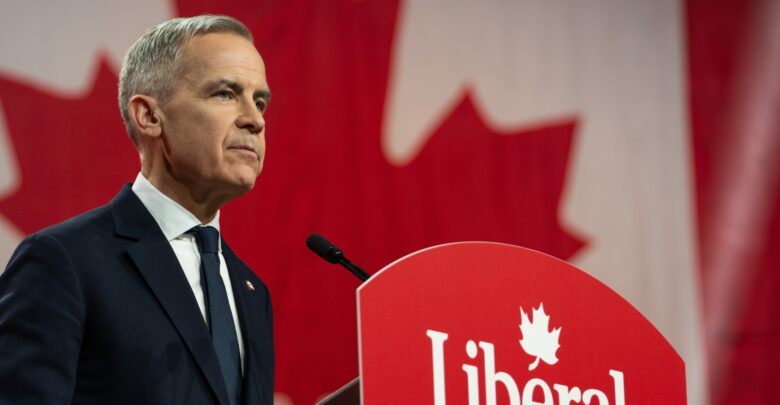 Liberal Party of Canada
Liberal Party of CanadaOn January 6, 2025, the day former Prime Minister Justin Trudeau announced his resignation, the Liberal Party of Canada was polling nationally at approximately 20.1 per cent. As of April 21, the number has gone up to a staggering 43.2 per cent, overtaking the Conservative Party led by Pierre Poilievre.
What is the reasoning behind one of the greatest turn of events in Canadian political history? There is no simple answer. A plethora of forces have been at play in the last couple of months. The list is full to the brim: United States (U.S.) President Donald Trump’s tariff threats, the unpopular Trudeau leaving the party, or voters’ disillusionment with other parties. However, arguably the great difference maker has been the rise of Mark Carney, the 24th prime minister of Canada and new leader of the Liberals.
Carney has been a part of the Canadian psyche for decades now. The Northwest Territories-born and Alberta-raised prime minister studied economics internationally at both Harvard and Oxford University. After working for 13 years at Goldman Sachs, Carney assumed the role of governor of the Bank of Canada in 2008.
It is this period of his career that Canadians remember Carney most memorably — and amiably — for. He has been given much of the credit for guiding Canada through the global financial crisis of 2008. Canada fared incredibly well compared to other countries worldwide during this large-scale recession. Whether the credit given to Carney is legitimate or not has been up for debate among economists and experts. Regardless, the Canadian public — for the most part — has praised him. Afterwards, Carney left Canada to work as the governor of the Bank of England. He advised the country during its dramatic exit from the European Union. That is yet another challenge some have given Carney credit for navigating.
The bottom line is this: Carney is not your everyday Canadian. He is an elite by every definition. He’s held top positions in two major countries and made millions in the private sector. Furthermore, there’s been questions about his finances and his business practices.
If Carney had entered politics just a handful of years ago, my prediction is that he would have had little chance of gaining significant support. He just would not resonate with everyday Canadians. He could not, and still cannot, pull off a Poilievrerian pitch of being the common person’s man against the bureaucratic elites of Ottawa. But Carney no longer has to. Because of the antics of Trump and the whole of his administration, anti-elitism and populism is losing favour in Canada. Voters no longer want people like Trump and Elon Musk, or any politician that reminds them of such figures, making immature decisions that impact the world and their own country negatively.
The polls are clear: Canada wants Carney. Though Carney knows not the average citizen’s struggles, Canadians prefer competence over relatability. This marks a huge shift in the political spirit of the Canadian people, and I would not be surprised if other Western countries followed suit in the coming years.
Poilievre’s advantage over Trudeau, Carney, or any elite Liberal has not changed. He is ultimately the layperson’s advocate at the highest level of Canadian politics. Unfortunately for him, it seems that many Canadians no longer want an advocate, they want a saviour.




